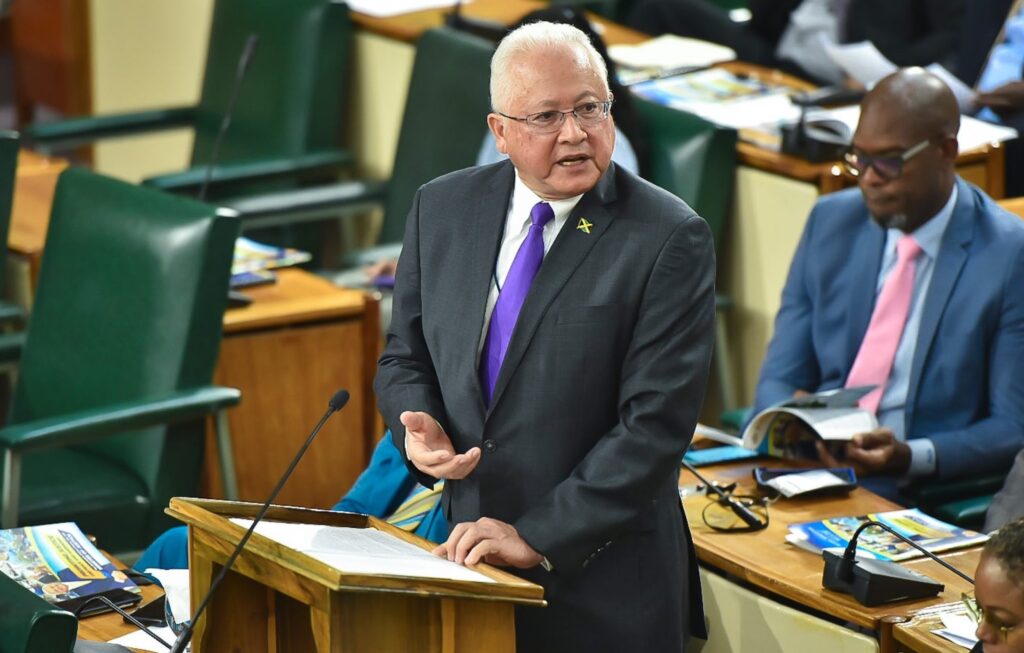

Minister of Justice Delroy Chuck today (May 17) says there is urgent need to adjust sentences outlined in the Offences against the Person Act and the Child Care and Protection Act.
Chuck, speaking during a Joint Select Committee (JSC) meeting in the House of Representatives, declared that the call for amendments comes in the wake of the recent passing of the Firearms Act, which imposed minimum mandatory sentences of 15 and 20 years for certain firearms offenses.
Chuck acknowledged that sentencing primarily falls within the jurisdiction of the judiciary, enabling judges to evaluate each case individually, considering both aggravating and mitigating factors.
However, he emphasised that it is the responsibility of the legislative body to review and update penalties across legislation to reflect society’s demand for justice and the severity of the crimes committed.
Chuck expressed concern over the growing cycle of violence, revenge, reprisal, and retaliation that has plagued Jamaica, particularly in gang-related conflicts.
He argued that implementing long and exceptionally long periods of incarceration for convicted criminals could help put an end to this destructive pattern. By apprehending, charging, convicting, and locking away criminals for extended periods, the government aims to send a strong signal to potential offenders that their acts will be met with severe consequences.
Violence and murders have had a devastating impact on Jamaican society, causing immense pain and suffering to numerous citizens.
The minister contended that murderers have not only taken lives but also undermined the well-being and integrity of homes, families, communities, and the nation as a whole. Therefore, court sentences should adequately express society’s anger, revulsion, and sentiments towards these heinous crimes.

Chuck acknowledged the deep-rooted emotions experienced by the families and friends of victims, who strongly believe that killers should not be able to enjoy their freedom after depriving their loved ones of their lives. He recognised that many people support the death penalty, which is still a possible sentence for capital murder in Jamaica.
The proposed alternative for capital murder is life imprisonment with a minimum mandatory period of 50 years before parole consideration. In some particularly brutal cases, judges have imposed life imprisonment without the possibility of parole, a sentence that many believe should be appropriate for capital offences.
Regarding non-capital murders, life imprisonment remains an appropriate sentence, although parole may be available after a minimum mandatory period of incarceration. The proposed amendments aim to increase the minimum mandatory period before parole eligibility.
To gather the perspectives of the Jamaican populace, the Joint Select Committee, led by Chuck, aims to hear from the public on the proposed penalties. The committee recognises the importance of considering the views of victims and their families, as they often feel aggrieved when sentences appear unduly lenient.

Chuck also proposed the repealing of the Criminal Justice (Amendment) Act of 2015, which currently allows judges to reduce sentences by 15 per cent to 50 per cent for guilty pleas. Instead, he suggested implementing a system where guilty pleas would be followed by agreed sentences involving the offender, defence, prosecutor, and the court. This approach aims to avoid potential appeals or concerns regarding sentence leniency.
As the government grapples with rising violence and seeks to protect its citizens, amendments to the criminal justice laws are being carefully considered to ensure that penalties align with the gravity of the offences committed. By sending a clear message to potential offenders, the government hopes to deter violent crimes and bring about a safer and more secure Jamaica.







Comments